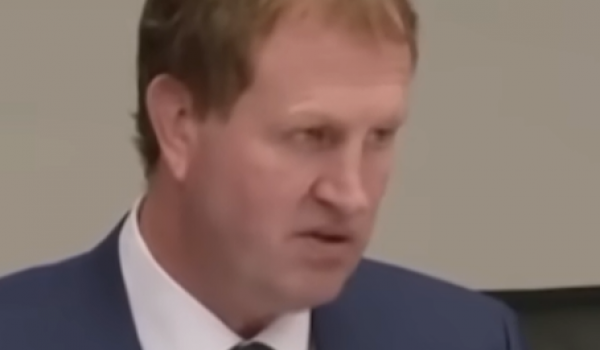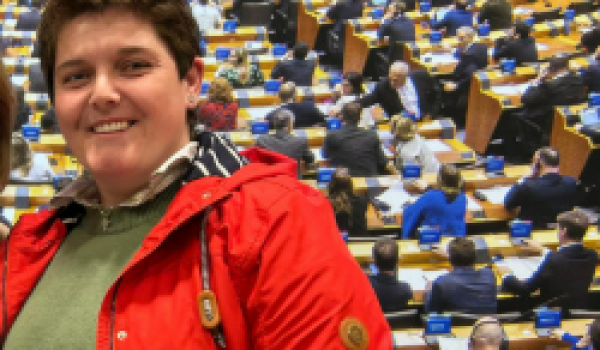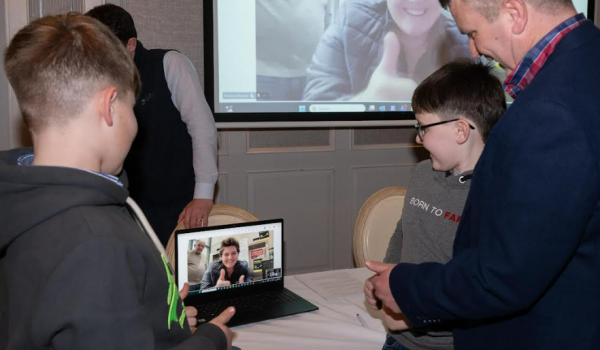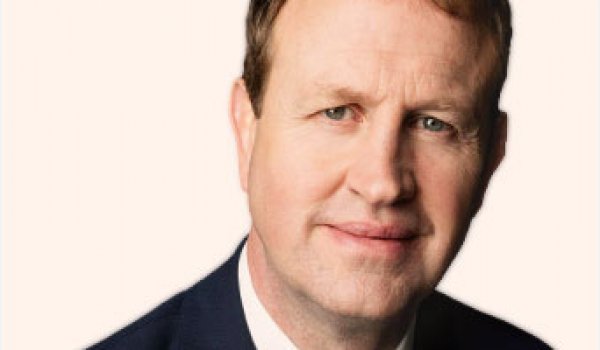As expected, the Pope has appointed Monsignor Eamon Martin as assistant and successor to the Primate of All-Ireland.
The Diocesan Administrator of the Diocese of Derry is to take on the role of Coadjutor Archbishop of Armagh.
It means Monsignor Martin will assist Cardinal Sean Brady until he decides to step down from office, which will happen within the next two years.
In 2010 – Cardinal Brady asked Pope Benedict to appoint an assistant to help him carry out his duties.
A short time ago, Mgr Martin issued the following statement…..
My brothers and sisters in Christ: I have a whole mixture of feelings as I greet you today. I was shocked some days ago, when I heard Archbishop Brown say that Pope Benedict XVI had nominated me as Coadjutor Archbishop of Armagh. I am very conscious of the great trust that the Holy Father has placed in me, but in truth I have to admit it was with considerable nervousness and trepidation that I accepted his call. So it means a lot to me that you are here today – thank you for this very warm welcome. Archbishop Brown, I appreciate you taking the time to be with us and all your support. And thank you, Cardinal Brady and Bishop Clifford for welcoming me here to Armagh and for your encouragement in recent days. No doubt today, Cardinal Brady, brings back memories of when you were ordained as Coadjutor Archbishop of Armagh back in February 1995. Thank you for your dedication and commitment to the Archdiocese over many years. I very much look forward to working with you.
Over the past few days, I have reflected a lot on this new calling from God in my life. I am humbled and honoured to serve as bishop in this historic Archdiocese of Armagh. I feel like the apostles in chapter 5 of Luke’s Gospel, being called by Our Lord to be courageous, to ‘put out into the deep’ (Luke 5:4). And as I come to this wonderful place, Armagh, the Christian heart of Ireland – I find myself like St Patrick praying for:
God’s strength to pilot me, God’s wisdom to guide me,
God’s word to speak for me,
God’s way to lie before me, God’s shield to protect me.
I have much to learn from all of you, the people, religious and priests of Armagh and I look forward to listening to you and benefiting from your experience and wisdom. Indeed, I will concentrate my initial efforts on getting to know you.
At the same time it is only natural that I feel sorry that I will soon be leaving my native Diocese of Derry where I have been privileged to serve God’s people for the past twenty-five years. During this Year of Faith I have been reflecting on my own journey of faith. I am deeply grateful to my mother and my late father who handed the faith on to me, and taught me to pray. I’m conscious of the teachers who enabled me to learn more about God and the Church and helped my relationship with Jesus to grow stronger. I have been blessed in my family and close personal friends whose love and sacrifices have supported me on my journey as a priest. They have never stopped encouraging me, including sometimes having to bring me to my senses and keep my feet on the ground!
We live in a time of great change, challenge and opportunity. It is a time, as the psalms say, to ‘sing a new song to the Lord’. There is need for renewal in the church, so that the message of Christ, in all its richness, is presented in ways which engage a new generation. There is a need for a mature relationship between church and society, in both parts of this island, and people of faith have a vital role to play. It would hugely impoverish our faith if we were expected to ‘leave it at home’ or ‘keep it for Sundays’, excluding it from our conversations and actions in daily life. I believe it would equally impoverish society if the fundamental convictions of faith were unable to be heard in public debate; it would diminish our understanding of the human person and dilute the concept of the common good. In these days of recession and financial crisis, many people are struggling to find work, pay the bills and keep food on the table. And there are other kinds of poverty around us – a poverty of meaning in life, a poverty of purpose, a poverty of hope. Today, more than ever, people of faith are called to present to the world ‘a coherent ethic of life’ – one which knits together a conviction about the sacredness of human life and the dignity of the person, with a commitment to solidarity and the family, to the fair distribution of goods and environmentally sustainable development, to justice and peace.
As Christians, we are not there to impose, but to invite; we are not there simply to oppose, but to convince others of the truth of Christ’s teaching and to offer them the gift and message of salvation. We say to everyone in our society, as Blessed Pope John Paul II did: ‘Do not be afraid, the Gospel is not against you, but for you’, or as Pope Benedict XVI put it: ‘if we let Christ into our lives, we lose nothing, absolutely nothing of what makes life free, beautiful and great’.
I look forward to getting to know Archbishop Clarke and the other Christian Church leaders. It is important that we encourage dialogue and seek common cause with all groups and individuals who are working for the common good. The continued threats from those who appear not to want lasting peace, and the tensions on our streets in recent days, remind us how important it is to work more closely together for true and lasting reconciliation. There is still much to be done in healing the wounds caused by division and mistrust. We in the Churches can play out part – inspired by the Word of God which speaks clearly to us about conversion, repentance and forgiveness.
One of the greatest challenges facing our Church is to acknowledge, live with, and learn from the past, including the terrible trauma caused by abuse. I think today of all those who have been abused by clergy, and the hurt and betrayal they have experienced. As the words on the Healing Stone at the International Eucharistic Congress remind us – they have been left with a lifelong suffering.
I am saddened that many good Catholics were let down so badly over the issue of abuse and that some have even stopped practising their faith. It saddens me because I love God and I love the Church that I serve. I believe that faith in Jesus Christ brings meaning and purpose to our lives and gives hope and healing to anyone who feels broken or in despair.
As Church, we must continue in our efforts to bring healing to victims and ensure that young people are always protected, respected and nurtured. I bring with me the experience of working on the National Board for Safeguarding Children, alongside Mr Ian Elliott and his team. We can never take for granted that the safeguarding systems we have in place are robust and failsafe.
Although I am a little fearful in taking on this role of service, I am also enthusiastic. Fifty years ago, the Second Vatican Council was taking place in Rome. The work of the Council remains our work today, and its documents provide our compass as we strive to bring renewal to every area of church life. I shall hold on to the vision of the International Eucharistic Congress – the People of God, in communion with Christ and with one another, sent out from the Eucharist to glorify the Lord by their lives and to announce the Good News. We are all called to a deep personal friendship with Jesus Christ who is really present in the Eucharist and who speaks to us in his Word. He is the Way, the Truth and the Life! He gives us the courage to ‘put out into the deep’ and accept our share of responsibility for the past, the present and the future. Please continue to pray that God grant me the health and strength I need to do his will, and that, under the protection of Mary Queen of Ireland, my ministry may help to bring hope, renewal and joy to the People of God.
- Tue, 3 Mar 2026
- (+353) 07491 25000
- (+353) 086 60 25000





